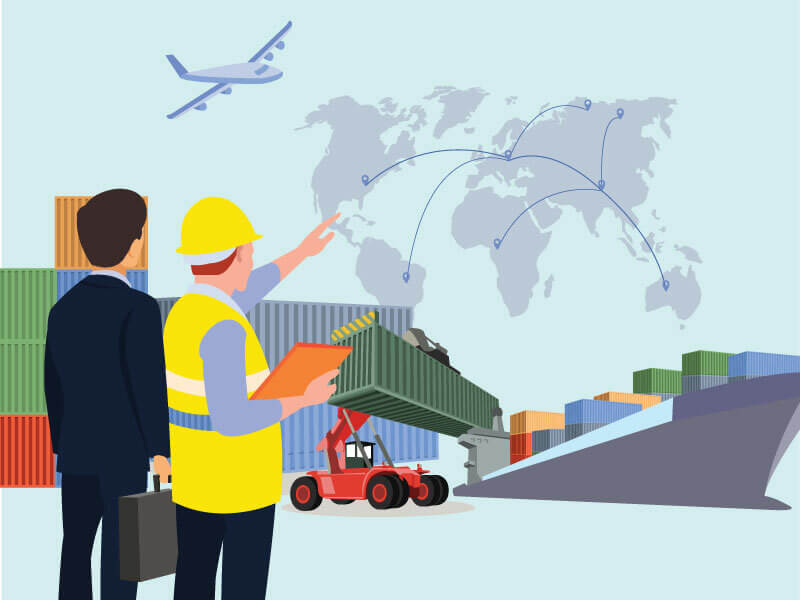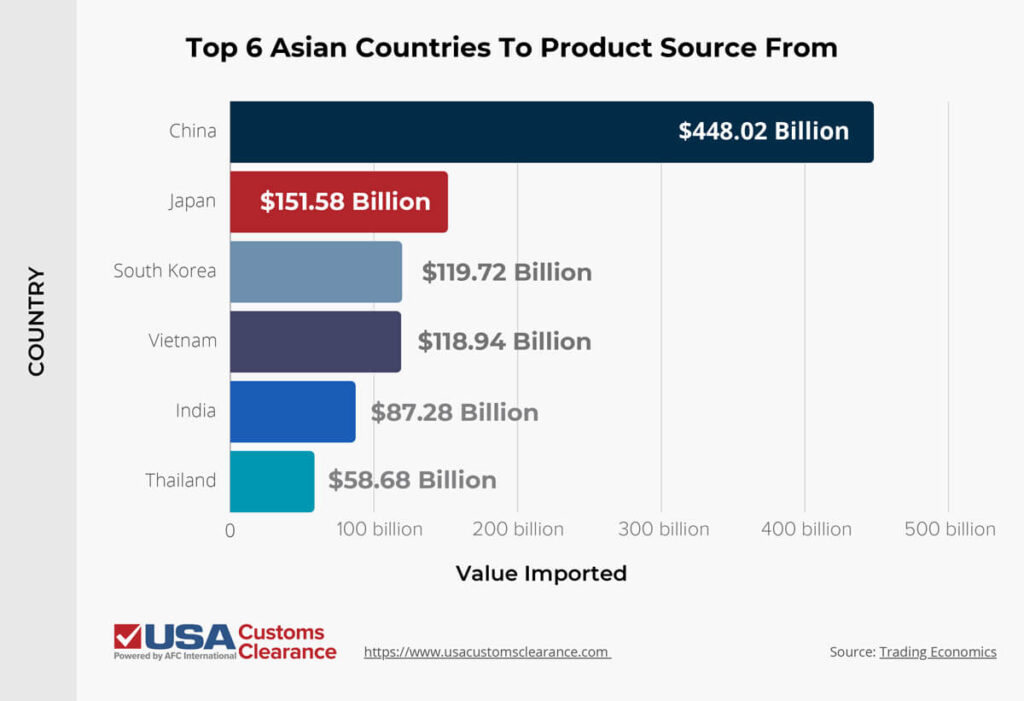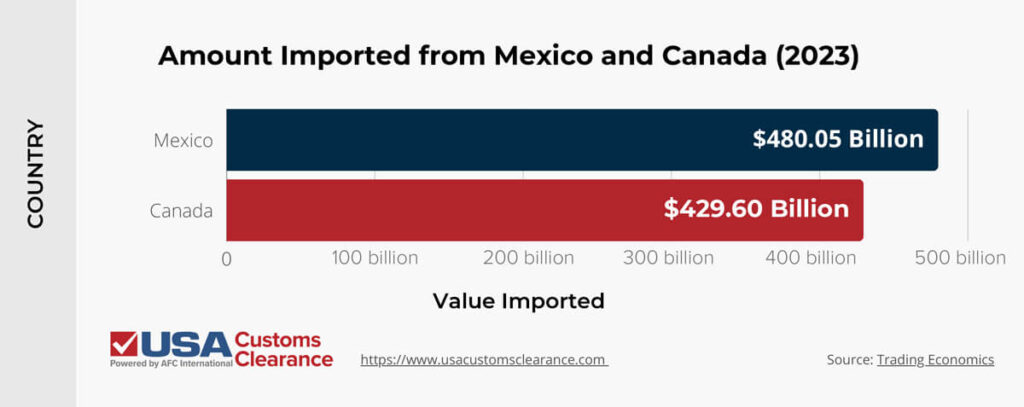
Learning how to source products from overseas suppliers is essential for most businesses. That said, many aspiring business owners and entrepreneurs find themselves stumped in the process. Fortunately, we have some useful information that will help you identify countries where reliable suppliers can be found.
Key takeaways:
Understanding how to source products from overseas properly requires digesting quite a bit of information. Fortunately for you, we’ve broken the process down in a clear and concise way.
When you search for goods overseas, you’re participating in a practice called product sourcing. This is when a product is bought from a third party and then resold. Businesses of all types use this practice to find goods from suppliers in other countries.
However, there are a few details you need to figure out before you start purchasing goods for resale.
The first detail you’ll need to work out is determining what products you’re going to sell. While every business owner has an idea of what their dream store will offer, what you want to sell might not be profitable.
Therefore, you should conduct some thorough research to find products that can give you good profit margins. When researching products, you’ll want to stock your store with goods that are popular with consumers.
Some ways you can easily find popular goods include:
You can determine the popularity of products by looking at store data sales. The items that are flying off the shelves at other stores and retailers can give you a good idea of what people find popular.
Reviews on products is another great method to use. Good reviews will guide you toward popular commodities, while bad reviews can help you avoid less desirable items. As a result, you’ll be able to provide only quality commodities.
Following trends is another useful method of commodity research. Trends are most prevalent on social media. Seeing what people enjoy and engage with the most will tell you which products will be most relevant at the time. One way to track social media trends is by taking a look at the Facebook ad library.
YouTube unboxing videos give you some great ideas for products to source. If YouTubers with good followings are giving positive reviews for the same items, there’s a likelihood that people will buy them in the future.
Amazon is by far the most popular ecommerce site today. One way Amazon can help you find products to source is by using their search bar. Simply type in the name of an item and pay attention to what it suggests.
The suggestions are indicators that people are looking these commodities up to buy. Google trends also work similarly by keeping track of searches. Each of these methods are great ways to get a better idea of what consumers are looking for.
Related: 8 Ecommerce Tips for Importers
Sourcing certain products from other countries is beneficial because of lower production costs. Countries in Asia are particularly popular amongst U.S. businesses. The top six Asian countries the U.S. imported from in 2023 can be found below.

U.S. importers source more products from China than any other country due to its low labor cost and expansive network of suppliers.
Japan and South Korea are also both excellent options to source products from because of free trade agreements that exist between them and the United States. These trade agreements reduce or eliminate duties on specific products imported from Japan and South Korea.
India is a great option for product sourcing due to its cheap labor expenses. One of the primary languages of India is also English, which makes communicating with potential suppliers easier. High quality goods can be found in Vietnam and Taiwan as well.
If you’re looking for suppliers closer to home, then consider looking to Canada or Mexico. In 2023, both countries were amongst the U.S.’s top five trading partners. To demonstrate their importance to the U.S., consider some data I’ve provided.

These two nations share a land border with the U.S., which reduces delivery times. All three countries also participate in the United States-Mexico-Canada Agreement (USMCA). This free trade agreement (FTA) will allow you to import most products from either country duty free.
Related: Importing from China To the U.S.

Our personalized approach and commitment to customer service will help you understand your unique customs needs.
Once you’ve decided on a country to source from, you can start looking for a supplier within that nation. Fortunately, there are numerous resources available that will help you find one that’s right for you.
Trade shows are a great place for you to meet with distributors from all over the world. You’ll also be able to see the products they have to offer. Trade associations are also great ways to get leads on potential suppliers. They can provide you with industry-specific events and directories.
Another option is to use your existing trade network. Your industry contacts and personal connections might be able to guide you to a reliable supplier. Finally, consider using online marketplaces. The most popular of these marketplaces is Alibaba, but there are many other alternatives available.
Now that you have the resources to find a supplier, you’ll need to know what to look for in a reliable one. Good suppliers will improve your supply chain rather than make it worse.
When looking for a supplier, make sure they have the following characteristics:
In the following sections, I’ll explain what these characteristics entail.
One feature that’s a mark of a good supplier is financial stability. That last thing you should ever have to worry about is getting a call from your supplier telling you they’ve gone out of business and can’t provide you with goods anymore.
Determine if a supplier is financially stable by researching these areas of their business:
Looking into these characteristics of their operations (at least as far as you’re able to) will tell you whether they’re in good financial standing.
Another way to tell if the supplier you’re researching is reliable is by taking a look at their quality certifications. There are numerous quality certifications that suppliers can have for the services they offer.
This includes
Certain companies will give suppliers a certification if they meet their requirements. In other cases, U.S. government agencies issue certifications.
One example would be the facility registration required by the Food and Drug Administration (FDA) for companies looking to supply food or medicine to U.S. consumers.
Related: The Complete Guide to FDA Customs Clearance
The experience of a supplier doesn’t necessarily pertain to how long they’ve been operating. Instead, try to learn about the experience of its leadership.
Many suppliers might put their leadership on their “about us” page. Others might require some further research. That said, leadership that combines experience and credentials can make for a reliable dealer, even if they haven’t been in business for very long.
Running a business requires flexibility, which means the purveyor of your goods should be able to keep up with your needs. Suppliers can swear up and down that they’ll be able to adapt to your needs, but the only way to know for sure is to check reviews from previous businesses that worked with the supplier.
Secondly, once they’ve agreed to a specific rate or supply schedule, get it in writing. A legal contract protects your business interests (more on this later). This leads us to the next quality.
Finally, you need to conduct business with a product provider that can take accountability for their responsibilities.
If your goods are damaged or defective when you get them, your supplier should hold themselves accountable by fixing the shipment. Thoroughly researching their record of completing orders and correcting mistakes will help you determine their reliability.
Sourcing agents can also be helpful. They can guide you toward companies that will provide you with the goods you require, while also showing you which suppliers to avoid.
After settling on a source, you’ll only have to complete a few more steps. I’ll break down what they are in the following sections.
The first step to securing a supplier is reaching out to them. When you do this, give them some information about who you are, your business, and that you’re interested in forming a partnership. This will be a segue into a conversation about where you’ll both get to know one another.
Once you’ve made contact with the supplier, request some samples from them. When you make this request, be sure that every aspect of the product sample order is to your specifications, including the packaging.
The quality of the sample will give an idea of what to expect for future orders if you pick that supplier. If a supplier refuses to provide a small batch of sample, you may want to consider looking elsewhere, as this is indicative of a possible scam.
If the samples sent by the supplier are to your liking, you can move on to finalizing a business agreement. Negotiating an agreement with your chosen supplier needs to be done with care. The supplier and yourself should have a clear understanding of how your business will be conducted.
After a business agreement has been reached, you’ll need to put it in writing. Signing a contract will make the arrangement with your supplier official.
This will prevent any misunderstandings in the future by ensuring everyone is on the same page. It’s a good idea to have your contract reviewed by a legal professional, preferably one that has knowledge on international business and law.
While you might agree to the terms of your current contract, there might be a time in the future where you or your supplier may want to change your conditions in the future. With that in mind, leave room for your contract to be renegotiated as needed.
USA Customs Clearance will help you with your global product sourcing needs. As we noted earlier, we can assist you in obtaining a customs bond and importer registration. Our experts have all the knowledge on CBP regulations and more, so you never have to worry about your imported products being put on hold.
We also offer a variety of services that you can use:
You’ll be in good hands when you choose USA Customs Clearance. Use one of our services today or contact our team (855) 912-0406 if you have any questions. You can also contact us through the site.

We work with you every step of the way to ensure a smooth and stress-free customs experience.
 Copy URL to Clipboard
Copy URL to Clipboard
Add your first comment to this post